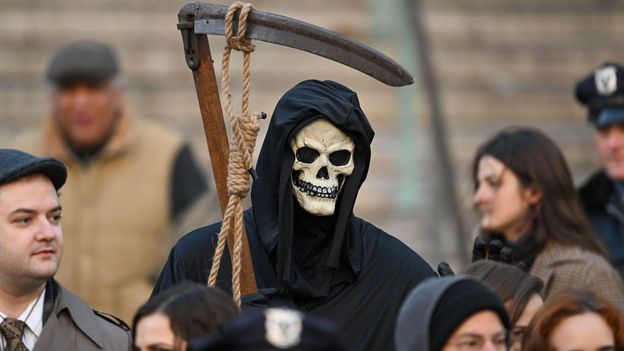Would it make a difference if it was Mrs, Miss or Ms Coronavirus, I wonder...
When it comes to our health, however, anthropomorphism may protect us from risk. In the early stages of the Covid-19 pandemic, for example, they gave participants one of two messages offering information about ways to avoid infection. The only difference between the messages was the level of anthropomorphism – whether the text referred to "the coronavirus" or "Mr Coronavirus", for example.
"You can meet Mr Coronavirus through contact with an infected person when they cough or sneeze. You can also run into him when you touch a surface or object that has the virus on it, then touch your eyes, nose, or mouth," they were told. "There's currently no vaccine to keep Mr Coronavirus at bay, but you can protect yourself and others by keeping your hands clean, not touching your face, avoiding close contact with people outside of your household, and taking other common-sense measures to limit your exposure (eg staying home)."
"The idea is to make the disease seem as if it is up to something and in motion," Wang and her colleagues explained to BBC Future in an email. Despite constituting relatively small differences in language, the personification of the virus increased people's intentions to comply with the recommendations.
To replicate the result, the team conducted similar experiments for a variety of other diseases – and found very similar results each time. Whether the participants were examining information about vaccination for yellow fever, screening for breast cancer, sunscreen to avoid skin cancer, or means to reduce high blood pressure, messages that anthropomorphised the relevant illness encouraged greater compliance with the medical advice.
https://www.bbc.com/future/article/20230914-why-we-personify-threatening-events

There are no comments yet.